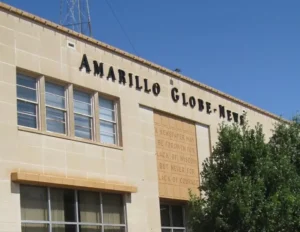I pledged some time ago that I would keep you apprised of certain aspects of my private life as I continued on my retirement journey into old age.
With that I will make an admission: I have fallen short on one of my key goals, which was to complete the draft of my memoir by the first quarter of 2025. OK. I got that off my chest.
Now I will make another pledge. My intention is to finish that task by the end of this year. I need to parse the language just a bit. Notice I said it is my “intention.” I intend fully to complete this task.
For those who are unaware, I spent nearly 37 years covering communities in Texas and Oregon for newspapers. I worked for four of them, two in Oregon and two in Texas. I pursued my craft with great joy … until the end began creeping up on me. The end came on Aug. 30, 2012 when I learned I had fallen victim to the changing media environment. My boss at the Amarillo Globe-News informed me I would no longer do the job I thought I did pretty well for 18 years there. I resigned on the spot.
Then my bride said to me, “You know, you need to tell the story of your career. You’ve met some fantastic people and done some unbelievable things. Put it down and give it to our boys.” I agreed. I started work on it.
I had to compile the lengthy list of notable folks I encountered along the way. Some of them were great men and women; others were, well, not so great. I did some remarkable things along the way. I flew over an erupting volcano in early 1980; I returned to Vietnam in 1989, where I served for a time in the Army; I took part in an aircraft carrier tailhook landing and a catapult launch in 1993.
Only recently, I came up with a working title for my memoir. It’s called “My Life in Print.” It has a bit of a double entendre. It tells of my career using a print medium; and it tells the story of my modestly successful — and fully joyful — career in print journalism.
I got distracted along the way. I lost my bride to cancer 2 1/2 years ago. We had moved from Amarillo to the Dallas area six years ago. My effort to rebuild my life has taken more of my attention than I imagined. One of my two sisters recently passed away.
But … it’s not a downer. I have finished about 65% of the writing. I am pretty much done adding names of individuals to my already lengthy list. The end of this project is in sight. At least I think it is.
I also intend to publish it in some form. I want to bind the pages in a binder with an engraved cover. I also plan to dedicate to my bride, Kathy Anne, my immediate family and to the men and women I encountered along the way who have given me the grist to help me tell my story.
Moreover, when I’m done, you’ll be among the first to know.

